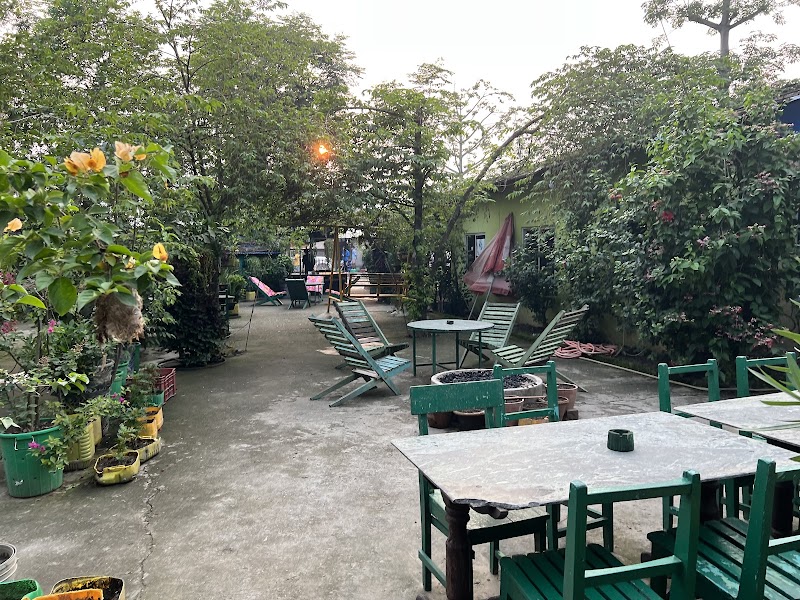
Experience the Tharu Cultural Festival: Celebrate Life and Tradition in Chitwan, Nepal
The Tharu Cultural Festival in Chitwan celebrates one of Nepal’s most vibrant indigenous cultures with music, dance, and rituals set against a lush riverside backdrop. This guide offers practical tips to help you navigate the festival experience confidently while connecting deeply with local tradition.
Stay Hydrated in Warm Weather
Carry enough water (2+ liters) and electrolyte supplements to stay safe during hot afternoons, especially since much of the festival is outdoors.
Wear Comfortable, Grippy Footwear
Paths around the village and festival sites are often uneven or muddy after brief rains; sturdy shoes will keep you steady.
Respect Photography Boundaries
Always ask before photographing people or ceremonies to honor local customs and build positive connections.
Plan for Flexible Timing
Arrive early or late in the day to avoid harsh midday sun; mornings and evenings carry better light and cooler temperatures.
Experience the Tharu Cultural Festival: Celebrate Life and Tradition in Chitwan, Nepal
When the dense forests of Chitwan begin to hum with vibrant rhythms, it’s a clear sign that the Tharu Cultural Festival is near. This annual celebration offers more than spectacle—it’s an invitation to engage directly with the Tharu community, whose traditions hold steadfast in a rapidly changing world. Set near the banks of the Rapti River, the festival unfolds over several days filled with dance, song, and cultural rituals unique to this indigenous group.
Visitors arrive in Sauraha, the gateway town to Chitwan National Park, balancing excitement with careful preparation. The event’s core spans open-air stages and village courtyards where the Tharu people don colorful attire, each bead and fabric fold representing generations of heritage. Traditional instruments—madal drums, flutes, and the rising notes of local horns—drive rhythms that feel alive, daring you to keep pace.
The terrain around the festival grounds is flat but surrounded by thick sal and riverine forests. Expect warm days interspersed with cooling breezes that carry scents of earth and flowering neem trees. Walking between event spots is easy, but wearing comfortable, sturdy footwear is advised as unpaved paths can become slippery during brief afternoon showers.
Timing your visit is straightforward: the festival usually occurs in late April or early May, coinciding with the Hindu New Year and harvest cycles. Days are long and sunlit, so hydration is key; carry at least two liters of water and consider electrolyte supplements to manage the heat. Early mornings and late afternoons offer a gentler climate—ideal for photography or joining in lively community dances.
Among the practical details, respectful curiosity is your best companion. Engage openly, but ask permission before photographing individuals or sacred ceremonies. The Tharu people blend warm hospitality with proud traditions, and this mutual respect deepens the experience.
Travelers should pair this cultural immersion with guided day trips into nearby Chitwan National Park. Here, the land turns fiercer: the sounds of wild rhinos grumbling in the distance and colorful hornbills flitting through canopy layers remind you of a natural world that doesn’t yield easily. It is this dance between human celebration and primal wilderness that defines an adventure in Chitwan.
Whether you come as a seasoned traveler or a curious first-timer, the Tharu Cultural Festival invites you to explore Nepal’s rich cultural landscape with a practical mindset—ready to move, engage, and absorb. Plan for sun protection, respect local customs, and allow time for the unexpected rhythms of rural life. The festival isn’t simply a show to watch; it’s a living encounter with a culture that challenges you to look beyond the surface and embrace tradition fiercely and fully.
Nearby Trips
All Adventures
Boat Charters
Water Activities
Adventures near Chitwan, Nepal
Discover the unique and memorable adventures that make Chitwan, Nepal special.
Frequently Asked Questions
When is the best time to attend the Tharu Cultural Festival?
The festival is typically held in late April or early May to coincide with the Hindu New Year and harvest season, offering the most authentic cultural experience.
Are there any entry fees for the festival or village areas?
Most festival events are free to attend, but some cultural performances may request small donations. Participating in guided village tours might have a fee.
What wildlife might I see near the festival grounds?
While the festival focuses on cultural activities, the nearby forests are home to various species including Indian pangolins, barking deer, and migratory waterfowl around the Rapti River.
Is it suitable for children or elderly visitors?
Yes, the flat terrain and engaging cultural programs make the festival accessible for all ages, though parents should monitor children near busy crowds and riverbanks.
Can I purchase traditional Tharu crafts at the festival?
Many artisans sell bamboo crafts, textiles, and jewelry on-site—ideal for supporting local communities and bringing home unique souvenirs.
How does the festival contribute to local conservation efforts?
The festival raises awareness of Tharu cultural heritage and the natural environment, often partnering with conservation groups to promote sustainable tourism in Chitwan.
Recommended Gear
Lightweight Walking Shoes
Provides grip and comfort on uneven or muddy paths around festival areas.
Water Bottle with Filter
Ensures safe hydration when potable water is limited during outdoor activities.
Sun Hat
Protects against strong mid-day sun during festival events and village walks.
Mosquito Repellent
A must-have for early evening hours as mosquitoes become active near river and forest edges.
Local Insights
Hidden Gems
- "The serene viewpoint overlooking the Rapti River, popular at sunset with few visitors"
- "Small Tharu homesteads offering immersive cooking demonstrations"
Wildlife
- "One-horned rhinoceros"
- "Barking deer"
- "Great hornbill"
- "Fishing cats glimpse near riverbanks"
History
"The Tharu people have inhabited the Terai plains for centuries, maintaining distinct traditions, language, and rituals despite pressures from modern development."
